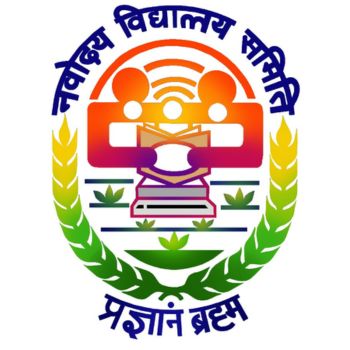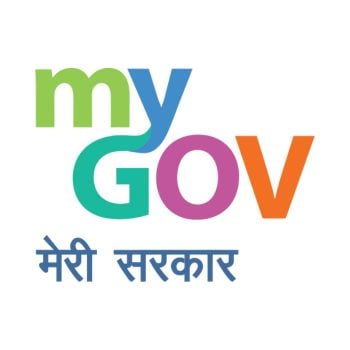Applications are invited for the Biomedical Engineering Innovation Program by the John Hopkins Whiting School of Engineering. Apply now!
About the John Hopkins Whiting School of Engineering
The Johns Hopkins Whiting School of Engineering transforms society through innovative engineering education at the undergraduate, graduate, and doctoral levels. The Whiting School of Engineering is the engineering college of the Johns Hopkins University, a private research university in Baltimore, Maryland.
About the Program
Make connections and dive deep into the biomedical engineering field by taking Biomedical Engineering Innovation (BMEI), a program designed for students just like you by faculty of the nation’s number one program in biomedical engineering!
During the JHU three-credit course, you will model biological systems and design experiments to test those models and use engineering principles to solve biological, physiological, and/or medical design problems.
Expand your STEM skills, explore biomedical engineering, build confidence, and prepare for college—all in an interactive and engaging online environment!
Dates
- Fall Session: August 28 to November 17, 2023.
Projects
You will learn to model both human efficiency and the circulatory system and complete a biosensor design project. You develop your own independent project by forming your hypothesis, designing an experiment to test your hypothesis, collecting and analyzing data and finally preparing and presenting your results in an online poster.
Eligibility Criteria
Grade and Age Requirements
You must be a current high school student or recent high school graduate. Their typical student is a rising junior (~35%) or senior (~65%) in high school. Talented ninth-graders (rising sophomores) may be considered; however, priority will be given to older students. Graduated seniors are also eligible to participate during the summer before they begin their college career.
Academic Prerequisites
- As and Bs in your high school math and science classes.
- Completed Algebra II.
- Completed a course where trigonometric functions are taught. You must be able to use sine, cosine, tangent, and the Pythagorean Theorem to determine angles and side lengths for right-angle triangles.
- Completed a full year of high school physics, including a lab; students need to be comfortable with drawing and calculating forces in free-body diagrams, equations of motion, and principles of electric circuits prior to taking BMEI.
Computer and Lab Requirements
Computer Requirements
You will need a computer to access course materials found both in MS Teams and on the Canvas learning management system.
- Canvas works best with Firefox or Chrome web browsers. You should install the most recent version of either Firefox or Chrome web browser. For the best experience using Canvas you may consider enabling third-party cookies on your browser.
- MS Teams is a cloud-based application that you will access using the JHU login credentials that you will receive when you accept an offer of admission.
Additionally, the computer should have:
- Ability to install Arduino software .
- USB port to communicate with the Arduino.
- Reliable internet access.
- Ability to videotape the course projects and upload the footage to the course Canvas site or MS Teams.
Required Lab Supplies
Information on how to order the required lab supplies from their official vendor will be provided when you receive your offer of admission to the program.
The estimated cost of the lab supplies is less than $325 (less than Rs. 26k). Shipping fees and US sales tax will be added by our supplier when you order your kit.
Time Commitment
This is not a self-paced course. Students will have assignments or activities to complete on a daily schedule. Students should plan to spend 14-20 hours/week during a summer session and 7-10 hours/week during a fall or spring session of Biomedical Engineering Innovation
- All lectures are pre-recorded, so you can watch them at any time. The expectation is you will watch a specific video on the first day of the associated module, but you are able to watch it again for clarification. It is important to note there are regular deadlines for assignments throughout the course.
- Regular, real-time study sessions are held, at least twice a week, using MS Teams. These study sessions are optional and may be recorded and shared so students may access them at any time. You may also request to meet with your instructor or TA outside of the posted study sessions at a time that is convenient for you both.
- You will complete an independent project which requires at least three virtual design review meetings with your instructor. These typically last 15-20 minutes. Your instructor will publish a list of days and times for these reviews, and you will sign up for a session that works for you.
- You will also use MS Teams to interact with and ask questions of your classmates. All classmates may post questions in MS Teams for your course Instructor and TAs. Instructors and TAs will respond to questions from students within 24 hours, often within minutes.
Weekly Schedule
BMEI is mostly an asynchronous course where you work independently on your projects and assignments.
Watching Lectures and Taking Online Quizzes
On average, students spend 4-6 hours/week in the summer session and 2-3 hours/week in spring and fall sessions viewing the lecture material and completing the online quizzes.
Completing Homework Assignments
On average, students spend 4-6 hours/week in the summer session and 2-3 hours/week in spring and fall sessions completing assignments.
Lab Projects and Reports
On average, students spend 6-8 hours/week in the summer session and 3-4 hours/week in spring and fall sessions completing the lab activities.
How to Apply?
If you’re interested in this program, click here to apply.
Click here to read the official notification of the Biomedical Engineering Innovation Program by the John Hopkins Whiting School of Engineering [Pre-College Program; Online; Aug 28-Nov 17].
Image taken from here.




![CREST International Spell Bee 2023 [Winter] for Classes 1 to 8 [Exciting Awards Worth Rs. 4 Cr.]: Register Now!](https://school.noticebard.com/wp-content/uploads/sites/32/2023/07/NoticeBard-Featured-Image-Saheb-417.jpg)
![CREST Cyber Olympiad (CCO) 2023 for Classes 1 to 10 [Exciting Awards Worth Rs. 4 Cr.]: Register Now!](https://school.noticebard.com/wp-content/uploads/sites/32/2023/07/NoticeBard-Featured-Image-Saheb-416.jpg)
![CREST Reasoning Olympiad (CRO) 2023 for Classes 1 to 10 [Exciting Awards Worth Rs. 4 Cr.]: Register Now!](https://school.noticebard.com/wp-content/uploads/sites/32/2023/07/NoticeBard-Featured-Image-Saheb-415.jpg)